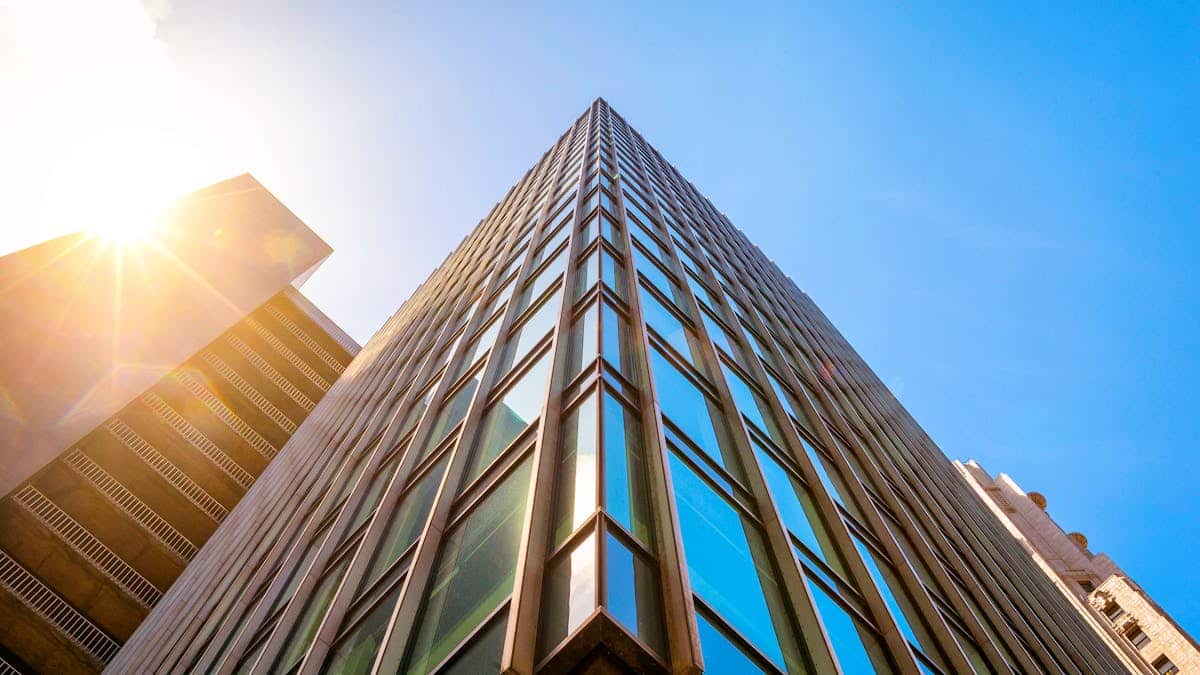Teleworking because it is too hot in the office is the daily life of certain employees who pay for a design that is unsuitable for global warming in office buildings, which are often glazed.
“It’s cooler at home than here, it’s hellish, I’m on the verge of going to buy survival blankets,” laments an employee of the real estate sector who did not wish to give her identity.
His workplace, however, has nothing to do with a restaurant kitchen, but his office, one meter from a south-facing bay window, is 29 degrees, five degrees warmer than the offices behind the east facade of the same building.
Entirely glazed, the building located in the Austerlitz district of Paris, was built in the early 2000s, and is a typical example of buildings overheating in summer, denounced by engineer Pascal Lenormand via a hashtag #balancetonfour, created in 2023 on social networks.
For this expert in the energy performance of buildings, when the glazed surface exceeds 30% of the floor area of a room, “it starts to become dangerous”.
For aesthetic and economic reasons, glazed tertiary buildings have become widely established since the end of the last century, like the La Défense business district, to the west of Paris. But although they provide light in large work spaces, they are less and less suitable for high heat.
The company of Romain, 38, has been based for two years in a coworking building in La Défense, renovated at the end of the 2010s. “It was brand new but it quickly got too hot, they had to turn the air conditioning on full blast,” he explains.
“We’re dying of heat, there are bay windows on every floor,” complains Adrien, 49, who works in the same building. Under the high temperatures of mid-August “a colleague broke down, she said that her cell phone had turned off because of the heat,” he explains.
“Not enough”
The subject of “adapting to global warming is still emerging” in office real estate, told AFP Juliette Lefébure, general director of the Sustainable Real Estate Observatory (OID), an association of real estate professionals committed to the ecological transition of the sector.
“Today, it is rather the issues of decarbonization (reduction of carbon energy consumption, Editor’s note) which are at the heart of building renovation projects, and not adaptation,” adds Gaëlle Peschoux, project manager within the OID.
The latest regulations that have come into force, at French and European level, have forced a certain number of players to address the issue of risks linked to climate change, including heatwaves, floods, etc.
This consideration, however, depends “on the size of the company, its portfolio and its resources, there is a real inequality in the face of climate change”, according to Thierry Laquitaine, director of socially responsible investment at real estate fund manager AEW.
The Institute of Economics for Climate (I4CE) has assessed the annual investment needs in France to adapt buildings, including housing, to heat waves at between “1 to 2.5 billion euros for new construction and 4.8 billion for renovation”, in addition to investments to achieve carbon neutrality objectives.
And unfortunately there are still “many assets emerging from the ground without taking into account the local or long-term context” of warming, deplores Juliette Lefébure.
She cites poorly thought out orientations in relation to the sun, unsuitable dark colors or even a choice of materials which do not sufficiently prevent the transmission of temperature between exterior and interior.
“Buildings are notoriously much better insulated than before,” assures Maxime Michaux, director of engineering for real estate advisor JLL, thanks to more efficient materials.
But even the environmental regulations for new construction which came into force in 2022 (RE2020) “are not sufficient”, according to the general director of the OID.
In addition to the unreasonable use of air conditioning to cool poorly designed buildings, the problem “is above all the endangerment of people”, warns Pascal Lenormand, for whom “the most dramatic situations are those in hospitals”.

